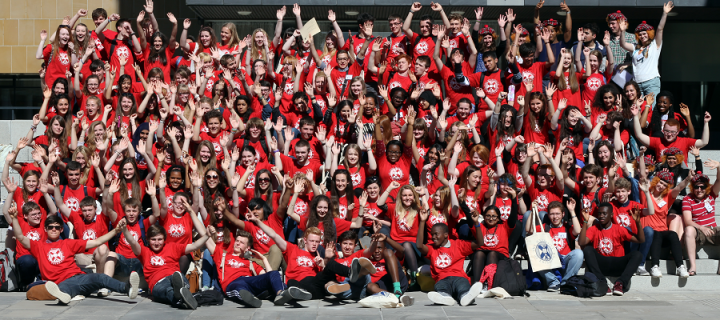Widening Access and Participation
Everyone deserves an equal opportunity to study or work at the University.

Building on its values, the University is committed to fostering a welcoming community, where staff, students and alumni feel proud to be part of the University.
We are ambitious in our plans for widening participation and demonstrate that within our Strategy 2030, where we state our future intention to be leading Scotland’s commitment to widening participation. As our Widening Participation strategy principles demonstrate, inclusion can and should be the lens to everything we do.
The University met the Commission for Widening Access targets of 10 per cent of our intake to come from the 20 per cent most deprived areas in Scotland 3 years ahead of schedule. Our students from SIMD20 areas represent 11.4 per cent of the undergraduate intake in 2019-20. In the current 2020 recruitment cycle we have been pleased to see a marginal growth and maintenance of those students who have applied and accepted offers from disadvantaged backgrounds.
Partnerships
The University has been working to develop partnerships with key regional college partners to develop new access and articulation routes for target groups including mature students, students from Scotland’s most deprived communities and those who have care experience. The University’s initial objective with these college partnerships, is to agree formal articulation agreements for a 1+3 model (HNC to year 2 entry) in a small number of subject areas. The first agreement we have in place will enable 2nd year entry for students from Edinburgh College to the University in 2020/21 to programmes in Health in Social Science.
International scholarships
The University has won £600,000 of scholarship funding to enable 35 students from low-income countries to study for a part-time, online master’s qualification. Applicants to the Commonwealth Distance Learning Scholarships programme, funded by the UK Department for International Development (DFID), come from low and middle-income countries around the world, including Asia, Africa, and the Caribbean. The successful applicants have been able to choose from a broad range of courses, under four headings: One Health, One Medicine; Global Health Innovation; Surgical Sciences; and Carbon Management.
Case studies
Our Widening Participation Strategy

